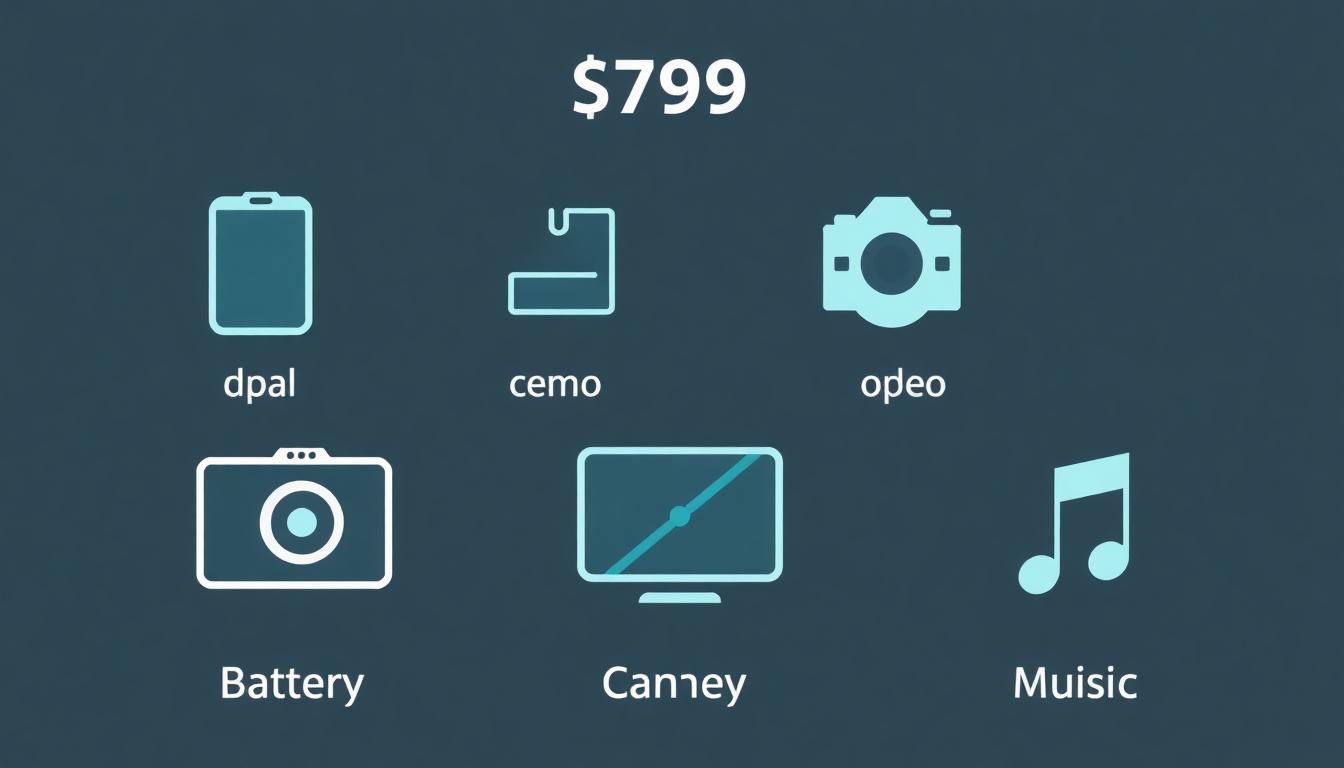Meta unveiled Ray-Ban smart glasses with a built-in display, priced at $799. Here is what the glasses can do, who they are for, and how they fit into the growing wearable tech market.
Quick takeaways:
- Price: $799 starting price for the display-enabled Ray-Ban model.
- Category: Smart glasses focused on glanceable info, camera capture, and voice control.
- Target user: Commuters, creators, and professionals who want hands-free capture and notifications.
- Competition: Apple, Google, and specialized AR devices set the bar on privacy, battery, and comfort.
What’s new in these Ray-Bans
The headline is the integrated display that shows glanceable visuals in your field of view. Think lightweight cues rather than full-blown mixed reality. The frames keep a classic Ray-Ban look, so they blend in. Meta pairs them with a companion app for setup, content, and permissions.
Key functions typically include hands-free photo and video capture, voice-activated controls, quick replies or notifications, music and calls via open-ear audio, and basic navigation aids. The idea is to reduce phone pickups and make capture more natural.
Specs and features to watch
- Display. A subtle overlay for glanceable data like directions or capture status.
- Cameras. Front-facing camera for quick photos and short videos, with an indicator light.
- Audio. Open-ear speakers for music, calls, and voice assistant prompts.
- Battery and case. A charging case helps extend day-long use for typical workloads.
- Controls. Voice, tap, and swipe gestures. Optional pairing with a phone for richer features.
Privacy and safety
Smart glasses raise fair questions about consent and recording. Look for a visible capture indicator, clear privacy settings, and the ability to disable cloud backups. Follow local rules on recording. In private spaces, ask before filming. For driving, rely on audio guidance; do not let visuals distract you.

Real-world use cases
- Commuting. Glance at turn prompts or transit info while keeping eyes up.
- Content creation. POV clips for social platforms without holding a phone.
- Work. Lightweight reference info, quick checklists, or on-site documentation.
- Travel. Translate signs, save moments hands-free, and follow walking directions.
How they compare
Compared to full AR headsets, these glasses favor style and battery life over immersive graphics. Against camera-first wearables, the added display makes them more useful for quick feedback. Comfort, heat, and all-day wear are key tests. Ecosystem support and third-party apps will decide staying power.
Who should buy
Buy if you want a discreet wearable that reduces phone dependence and you accept first-gen trade-offs. Skip if you need full AR visuals, prescription support at launch, or long 4K recording. If you are unsure, try them in store. Fit and comfort vary a lot by face shape.

Price, availability, and warranty
The display model starts at $799. Expect multiple frame and lens options, with add-ons affecting price. Availability may roll out by region. Check Meta and Ray-Ban’s store pages for shipping windows, warranty terms, and prescription compatibility.
Bottom line
Meta’s display-enabled Ray-Bans push smart glasses toward everyday wear. The promise is subtle help when you need it, with style-first design. If Meta nails comfort, privacy, and steady software updates, these could be the first smart glasses most people actually consider wearing daily.
To contact us click Here .







